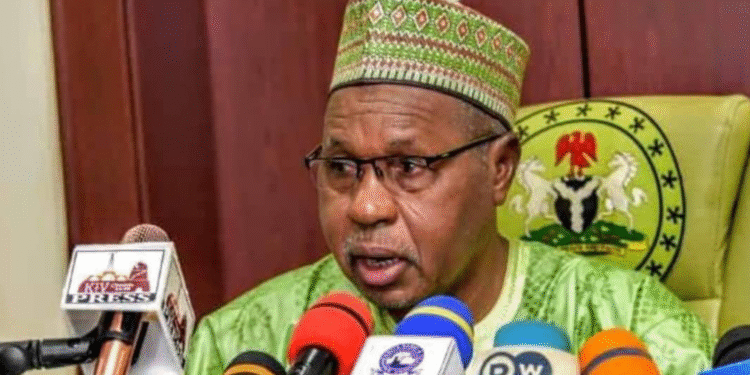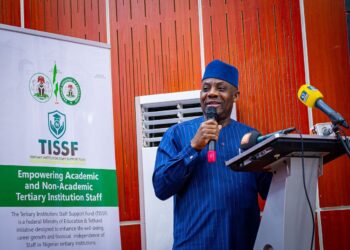The Tertiary Education Trust Fund has allocated ₦25 billion to enhance security infrastructure across Nigeria’s tertiary institutions, with plans to install streetlights and other protective facilities on campuses nationwide.
The Chairman of TETFund’s Governing Board, Rt. Hon. Aminu Bello Masari, announced this significant security intervention during a media briefing in Katsina while outlining the agency’s 2025 intervention projects.
According to the former Katsina State Governor, the substantial funding will enable tertiary institutions to implement comprehensive security measures designed to protect students, staff, and institutional properties from various threats.
“This intervention is to ensure that our campuses are safe and conducive for learning. Institutions will use the funds for projects that directly address security challenges, including improved lighting and other related measures,” Masari explained to journalists.
The security enhancement initiative represents just one component of TETFund’s ambitious 2025 program, which has been made possible by the agency’s record-breaking revenue collection of ₦1.6 trillion generated from the three percent education tax levied on company profits.
Beyond security infrastructure, Masari revealed that TETFund has already released over ₦100 billion to selected tertiary institutions specifically to expand their training capacity in medical sciences, addressing Nigeria’s acute shortage of healthcare professionals.
Under this medical education expansion program, three institutions from each of Nigeria’s six geopolitical zones have received ₦4 billion each to strengthen their infrastructure and academic programs in Medicine, Nursing, Pharmacy, and other allied health disciplines.
The comprehensive 2025 intervention package includes several other major allocations from the ₁.6 trillion revenue. Universities, polytechnics, and colleges of education across the country will receive a combined ₦460 billion for various developmental projects, while ₦225 billion has been transferred to the Nigerian Education Loan Fund to support the federal government’s student loan scheme.
Additionally, TETFund has earmarked ₦70 billion for institutions to develop alternative energy systems, including solar and gas-powered installations, to ensure uninterrupted electricity supply for teaching and research activities across campuses.
Masari emphasized that the agency has established a rigorous monitoring and evaluation framework to ensure proper utilization of the allocated funds. Professional consultants have been engaged to oversee project implementation and verify that expenditures align strictly with approved project specifications.
The massive funding injection comes at a critical time when Nigerian tertiary institutions face multiple challenges, including inadequate security measures, insufficient healthcare training facilities, and unreliable power supply that often disrupts academic activities.
The ₦25 billion security allocation is expected to significantly improve campus safety through enhanced lighting systems and other protective infrastructure, potentially reducing incidents of crime and creating more secure learning environments for millions of students across the country.



















